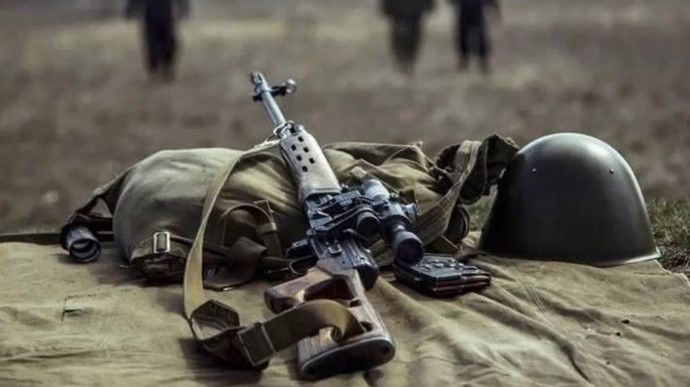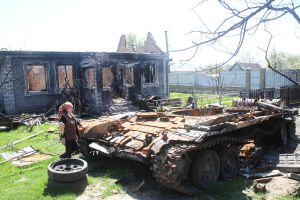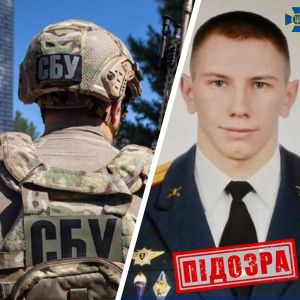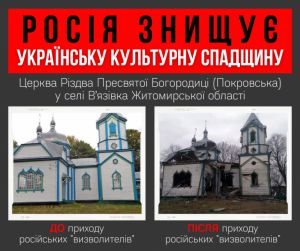Actually, there have been 20 declarations of ceasefire beginning with the summer of 2014. But this time, the current truce is called at the office of President Zelenskyy a breakthrough with a very serious status. The new ceasefire agreement concluded by Ukraine, Russia and the Organization for Security and Cooperation in Europe (OSCE) differs from the previous ones by a more detailed interpretation of the notion “possible violations”.
As the newspaper Holos Ukrainy has informed earlier, a full ban is put on the use of drones and reconnaissance in the so-called “grey zone” as well as on any offensive operations and sniper fire. The disciplinary measures for any violations of the “silence regime” in Donbas are in fact introduced for the first time. Senior military officers and President Zelenskyy assure that the new truce does not mean that Ukrainian military cannot fire in return.
On the eve of introducing “the total and comprehensive regime of ‘silence’”, the headquarters of the Joint Forces Operation issued the ceasefire order in line with “relevant measures which have been specified by the Trilateral Contact Group and have taken effect from 00.01 a.m. Kyiv time on July 27”.
According to the information sources of separatists and Russian media, the local militia of the “DNR and LNR” (Donetsk People’s Republic and Luhansk People’s Republic) has also been given the order on the truce from July 27. Militiamen are forbidden to use any type of lethal weapons including firearms. Those militants who will violate the ceasefire regime are threatened with disciplinary responsibility.
On July 26, President of Ukraine Volodymyr Zelenskyy had a telephone conversation with his Russian counterpart Vladimir Putin. Actually, it’s been the first communication between the two leaders in the past five months. The press services of the Presidents have published official statements which contain a number of important differences. For instance, the Russian press release does not mention Zelenskyy’s proposal that practical steps should be taken to release Ukrainian prisoners who are kept in Russia and the occupied Crimea.
As for the press release of the Office of the Ukrainian President, it says that the Presidents also discussed the law on the special status of Donbas and the law on decentralization which provide for introducing changes to the Constitution of Ukraine. The Russian version of the telephone conversation states that Putin has criticized the resolution of the Verkhovna Rada dealing with the procedure of holding local elections this year. Thus, according to this resolution passed by Ukrainian Parliament local elections will not be held to the Donetsk and Luhansk regional administrations.
At the same time, the Ukrainian and Russian statements stress that the Presidents gave a positive evaluation of additional measures dealing with the implementation of the ceasefire agreement.
As for political assessments given by Kyiv and Moscow, they differ, as usually.
Ukraine refers to the ceasefire agreement as a breakthrough while Russia tries to present it exclusively as its own victory and almost “coercion into peace”.
The Ukrainian President has explained why he expects much from this ceasefire agreement, first of all, because it should be signed by the leaders of the Normandy Four countries including Vladimir Putin.
However, in the morning of July 27 there was still no news whether Putin put his signature to the document on the truce in Donbas or not. Moreover, it was mentioned in the official press releases that the President of the Russian Federation “has supported the agreement”.
“Russia has always avoided an obligation to recognize itself a side of the conflict. It positions itself exclusively as a guarantor of the implementation of the Minsk agreements. Besides, it persistently promotes the idea of direct talks between Kyiv and the non-recognized republics”, says political analyst Petro Oleshchuk. In his words, “Ukraine does everything possible to fulfil the Minsk agreements. So, now the ball is on the Russian side”.
Other analysts warn that the truce may become the instrument of influence on Zelenskyy.
Even though the new truce in any form will stay in force for relatively long time, they say, Russia could use it as leverage over the current Ukrainian authorities in order, for instance, to provoke the violation of the “silence regime” that would result in a drop in the ratings of the President or the destabilization of the political situation in Ukraine.
The newspaper Holos Ukrainy






